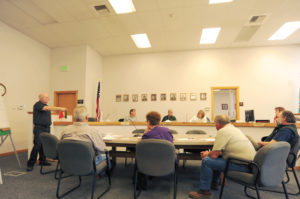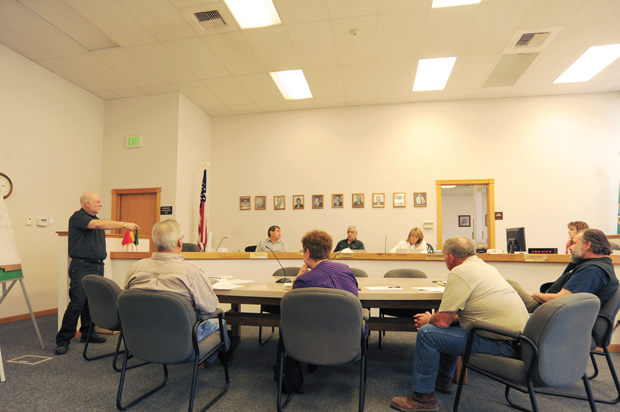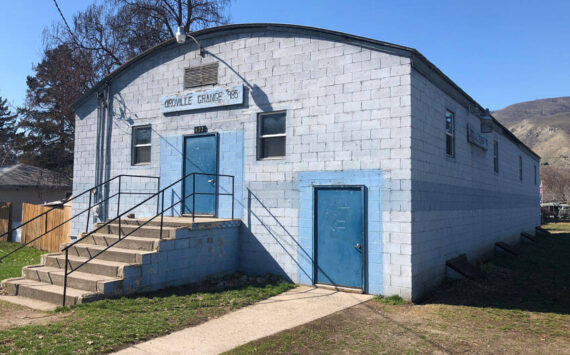

OKANOGAN – Although it still needs to be redrafted, representatives from Oroville and the Okanogan County Commissioners came to an understanding on several points regarding the county’s Eastlake Sewer System.
While Oroville operates the system, which utilizes the city’s wastewater treatment facility, the project was built by the county using a low interest state Public Works Trust Fund loan. The lions share of paying back the loan is still the responsibility of the county, except for about 27.2 percent which the city used to make improvements to its existing system in order to handle the increased capacity of the project, now and into the future. As the areas north of the city limits annex into the city, the responsibility for those parts of the system then become Oroville’s and will be paid through connection fees, similar to what the county is doing now.
The county and Oroville have been working on resolving some conflicts in a resolution the county was working on regarding the assumption of ownership of the system, according to Kathy Jones, Oroville City Clerk. Jones attended the meeting in the commissioners’ hearing room along with Mayor Chuck Spieth, Rod Noel, head of Public Works and Chris Branch, Director of Community Development. The county was represented by Commissioners Jim Detro, Ray Campbell and Sheila Kennedy, as well as Perry Huston, head of the Planning Department.
“One of the first conflicts involved sewer connection policy. We wanted to make sure that we had some input if the county was thinking of granting a waiver to anyone who didn’t connect to the sewer,” said Jones.
“We have adopted a policy where if you get water (from the city’s water system), you get sewer. We want to be all on one page,” said Jones.
She envisions a scenario where the county might grant a waiver based on a failing septic system on a property that could not get to the sewer system or where the property was miles from the nearest connection and it would be cost prohibitive.
“We just want to be involved in those decisions,” she said.
The second issue had to do with how the county and city differed in the way they divided up the system. The city uses a south, central, north division, starting from the Cherry Street Bridge. The county divided up the system going east and west depending on what side of Eastlake Road the property fell on.
The city prefers the south, central, north division because the further north you live the more it should cost because of the length of pipe required to get to the Oroville system and the number of lift stations needed, according to Jones.
“After they heard our reasons they were very supportive,” said Jones.
The third issue involved the PWTF loan repayment. The county has re-amortized from a 20-year payback to a 30-year payback. The city asked that they be included in the 30-year term as well in repaying their percentage of the loan.
This too met with the commissioners’ approval after the city reassured the county they would not oppose an assessment on property owners if the rate of connection was not keeping up with the loan payments, according to Jones.
“This was just a discussion, nothing the final draft of the agreement has not been drawn up. Overall I felt it was very positive meeting on these and other issues regarding the Eastlake system,” said Jones.
At Monday’s meeting Commissioner Detro indicated he wanted to make sure the county charge a fee that would allow them to have a “viable product.”
“What’s the cost to the county to hook up…. do we have to pay to extend the line,” asked Commissioner Campbell.
“The developer in most cases is required to pay for the development costs up front,” said Branch. “If they can they do recovery through a late-comers agreement.”
“So collection of our fee is just to pay our debt?” asked Commissioner Kennedy.
“That’s right,” responded Huston.
“Oroville’s fee is to pay for the system from the Cherry Street Bridge on. The county fee is not paid by those who live in the city,” said Noel.
“Those people have been in the city’s system for a long time and have bourn the brunt of it’s development over the years,” added Branch.






